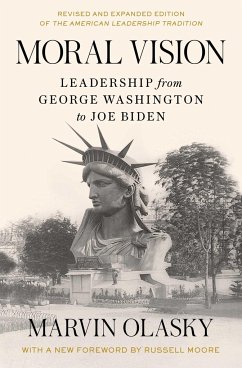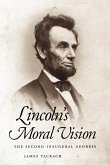"What makes a leader truly great? Is it simply a matter of management style or personality? Or does character matter and, if so, how much? Most Americans believe a president's private activities bear little relation to his public-policy decisions, yet we also believe that moral vision plays a role in strong leadership. Where does the truth lie? In the first modern systematic examination of the bond between morals and politics, Marvin Olasky examines the lives and careers of thirteen noted American leaders, including the great, the good, and the deeply flawed, from George Washington, Henry Clay, and Booker T. Washington to Woodrow Wilson, John F. Kennedy, and Bill Clinton. Olasky looks closely at the connections between religion, sexual practices, and political decisions, examining the repeated connections between private character and public action. He explains how so-called "compartmentalization" proved to be as impossible for Lincoln as for Woodrow Wilson. A man's character shows its stamp repeatedly during a career. In The American Leadership Tradition Olasky has many lessons to offer. For the cynical, he reminds us that it is not true that "they all do it," as the lives of Andrew Jackson and Grover Cleveland can attest. For the nostalgic, he reminds us that there have been principled men, like George Washington, alongside unprincipled ones, like Henry Clay, from the beginning. After reading this book it will be impossible to argue that John Kennedy's womanizing reflected a side of him that had absolutely nothing to do with his presidency, or that Abraham Lincoln's rectitude was unconnected with his greatness. Olasky shows that faithfulness in marriage may be no guarantee of faithfulness to the country, but faithlessness is a leading indicator of trouble. Leaders who break a large vow to one person find it easy to break relatively small vows to millions. He finishes with a chapter on Bill Clinton and what his recent controversies mean for 21st-century America, a question that may haunt American politics for a long time to come"--
Hinweis: Dieser Artikel kann nur an eine deutsche Lieferadresse ausgeliefert werden.
Hinweis: Dieser Artikel kann nur an eine deutsche Lieferadresse ausgeliefert werden.








